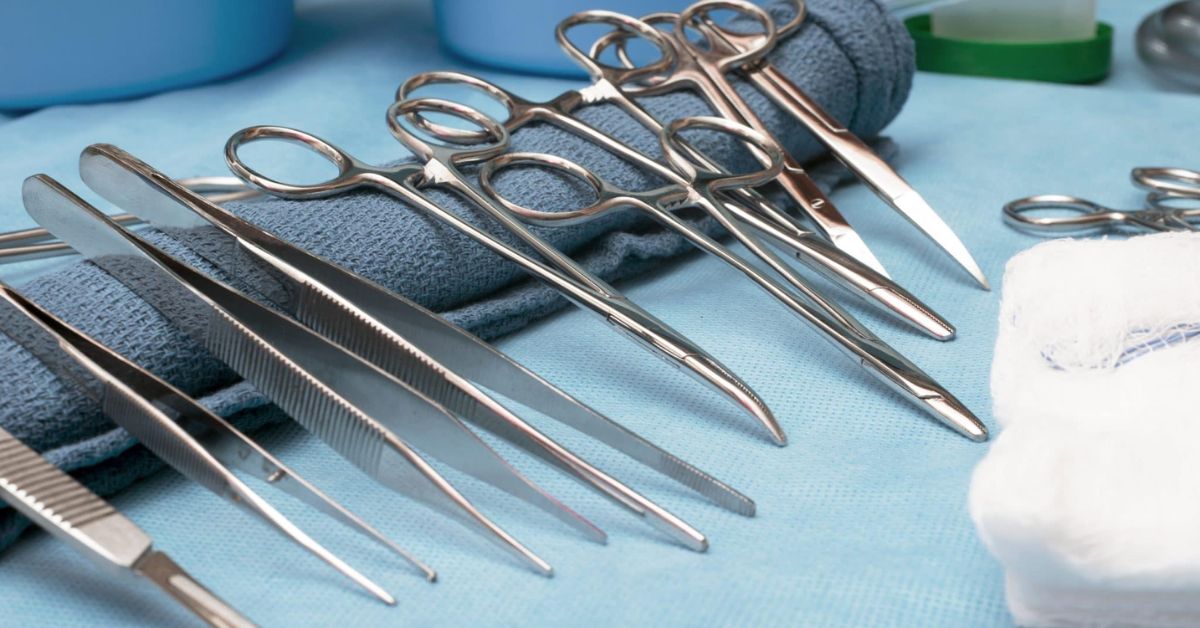The success of any surgical procedure heavily depends on the availability and quality of the Medical Tools for Surgery used. From precision scalpels to high-tech laparoscopic instruments, these tools play a crucial role in ensuring patient safety and optimal outcomes. For hospitals, procuring these essential tools involves more than just placing an order; it requires careful planning, strategic decision-making, and an understanding of the latest trends in medical technology. This guide outlines the critical steps and considerations for hospitals to effectively procure medical tools for surgery.
Understanding the Importance of High-Quality Medical Tools
Surgical procedures demand precision, reliability, and safety. Poor-quality medical tools can compromise patient outcomes, increase the risk of infection, and lead to unnecessary expenses for hospitals. Investing in high-quality instruments ensures:
- Accuracy: Precision tools allow surgeons to perform intricate procedures with confidence.
- Durability: High-grade materials reduce wear and tear, ensuring longer service life.
- Patient Safety: Properly sterilized and defect-free tools minimize complications during and after surgery.
Key Steps in Procuring Medical Tools
1. Assessing Hospital Needs
The first step in procurement is understanding the specific needs of your hospital.
- Specialties and Services Offered: A hospital with a focus on orthopedic surgery will require tools like bone saws and implants, while an ENT department will need specialized scopes and forceps.
- Volume of Procedures: High patient volumes may require bulk orders, while smaller hospitals may need fewer tools but with greater versatility.
- Future Growth Plans: If the hospital plans to expand services, procurement should consider these future requirements.
2. Researching Reliable Suppliers
Partnering with reputable suppliers is essential for ensuring quality and consistency. Consider the following when evaluating suppliers:
- Reputation: Look for suppliers with positive reviews and a history of reliability.
- Certifications: Ensure that suppliers adhere to international quality standards like ISO and FDA approvals.
- Customer Support: A good supplier offers prompt after-sales service, warranties, and technical support.
3. Evaluating Tool Quality
Quality assurance is paramount when it comes to Ent Surgery Instruments. Hospitals should:
- Inspect Materials: Stainless steel and titanium are commonly used for their durability and resistance to corrosion.
- Check Manufacturing Standards: Ensure tools meet industry benchmarks for precision and safety.
- Request Samples: Before committing to bulk orders, request samples to evaluate the usability and quality of the instruments.
4. Budget Planning and Cost Management
Procurement costs can quickly escalate without a well-thought-out budget.
- Prioritize Needs: Allocate funds for essential tools first before considering advanced or specialized equipment.
- Negotiate Pricing: Leverage bulk orders to negotiate discounts with suppliers.
- Consider Maintenance Costs: High-quality tools may have a higher upfront cost but lower long-term maintenance expenses.
5. Embracing Technology
The rise of online medical equipment platforms has simplified procurement processes for hospitals.
- Online Platforms: Many platforms offer detailed catalogs, customer reviews, and competitive pricing for medical tools.
- Smart Procurement Software: Tools like inventory management software can help track usage and reorder supplies efficiently.
- Advanced Tools: Consider investing in innovative instruments such as robotic surgical tools or AI-enabled diagnostic devices to stay ahead of the curve.
6. Ensuring Compliance and Regulation
Hospitals must adhere to strict regulations when procuring Medical Equipment Distributors in Bangalore to ensure patient safety and legal compliance.
- Government Approvals: Verify that the tools are approved by local regulatory bodies.
- Ethical Sourcing: Ensure suppliers follow ethical manufacturing practices.
- Staff Training: Invest in training programs to ensure that medical staff use tools correctly and safely.
Challenges in Procuring Medical Tools
1. Counterfeit Products
The global market for medical tools is unfortunately rife with counterfeit products that can jeopardize patient safety. Hospitals must:
- Purchase from trusted suppliers.
- Verify product authenticity through serial numbers and supplier documentation.
2. Budget Constraints
Hospitals often face financial limitations, making it challenging to procure premium-quality tools. Solutions include:
- Opting for refurbished instruments from certified vendors.
- Seeking government grants or subsidies for healthcare infrastructure.
3. Supply Chain Disruptions
Global events like pandemics can disrupt supply chains. Hospitals should:
- Maintain strong relationships with multiple suppliers.
- Stockpile critical tools to mitigate shortages.
Benefits of Strategic Procurement
A well-executed procurement strategy offers numerous advantages for hospitals, including:
- Cost Efficiency: Streamlined purchasing processes reduce unnecessary expenses.
- Operational Excellence: Access to reliable Surgical Equipment Manufacturers in Chennai enhances surgical outcomes and patient satisfaction.
- Competitive Advantage: Cutting-edge instruments attract top surgeons and patients to the hospital.
Sustainability in Medical Tool Procurement
As healthcare organizations worldwide focus on sustainability, hospitals can adopt eco-friendly practices in procuring medical tools:
- Reusable Instruments: Opt for reusable over single-use tools where feasible.
- Recycling Programs: Partner with suppliers offering recycling initiatives for old or damaged instruments.
- Energy-Efficient Tools: Invest in energy-efficient devices and sterilization equipment to reduce the hospital’s carbon footprint.
Conclusion
Procuring Medical Equipment Online Store is a critical process that directly impacts the quality of care hospitals can provide. By understanding hospital-specific needs, partnering with reliable suppliers, and leveraging modern technology, hospitals can ensure that they acquire high-quality, durable, and efficient tools. With a strategic approach, healthcare facilities can not only enhance their surgical capabilities but also improve patient outcomes and maintain financial sustainability.
As the field of medical technology continues to evolve, hospitals must stay updated on emerging trends and innovations to provide the best possible care. A thoughtful and comprehensive procurement strategy is not just an operational necessity but a cornerstone of excellence in modern healthcare.
